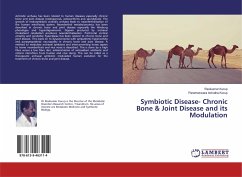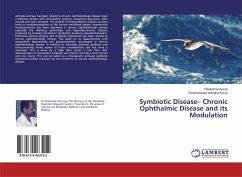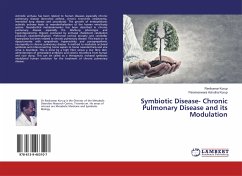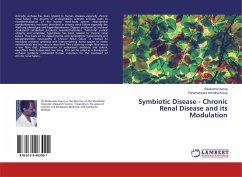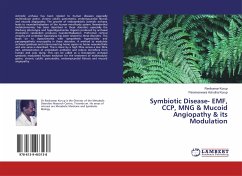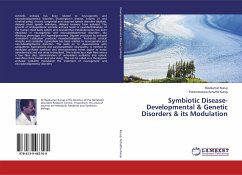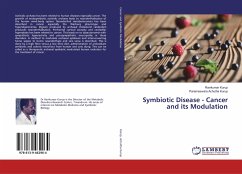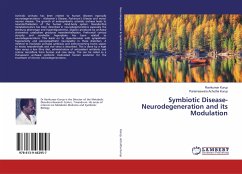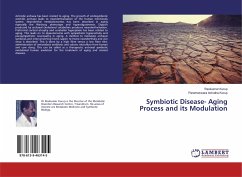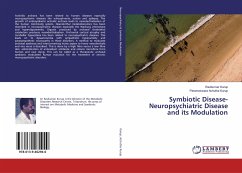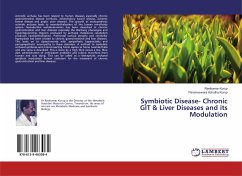
Symbiotic Disease- Chronic GIT & Liver Diseases and its Modulation
Versandkostenfrei!
Versandfertig in 6-10 Tagen
27,99 €
inkl. MwSt.

PAYBACK Punkte
14 °P sammeln!
Actinidic archaea has been related to human diseases especially chronic gastrointestinal disease (cirrhosis, inflammatory bowel disease, ischemic bowel disease and peptic ulcer disease). The growth of endosymbiotic actinidic archaea leads to neanderthalisation of the human mind-body system. Neanderthal metabolonomics has been described in chronic gastrointestinal and liver diseases especially the Warburg phenotype and hyperdigoxinemia. Digoxin produced by archaeal cholesterol catabolism produces neanderthalisation. Prefrontal cortical atrophy and cerebellar hyperplasia has been related to chro...
Actinidic archaea has been related to human diseases especially chronic gastrointestinal disease (cirrhosis, inflammatory bowel disease, ischemic bowel disease and peptic ulcer disease). The growth of endosymbiotic actinidic archaea leads to neanderthalisation of the human mind-body system. Neanderthal metabolonomics has been described in chronic gastrointestinal and liver diseases especially the Warburg phenotype and hyperdigoxinemia. Digoxin produced by archaeal cholesterol catabolism produces neanderthalisation. Prefrontal cortical atrophy and cerebellar hyperplasia has been related to chronic gastrointestinal and liver diseases. This leads on to dysautonomia with sympathetic hyperactivity and parasympathetic neuropathy in these disorders. A method to modulate archaeal symbiosis and interconverting homo sapien to homo neanderthalis and vice versa is described. This is done by a high fibre versus a low fibre diet, administration of antioxidant antibiotic and colonic microflora from human and cow dung. This can be called as a therapeutic archaeal symbiotic modulated human evolution for the treatment of chronic gastrointestinal and liver diseases.



